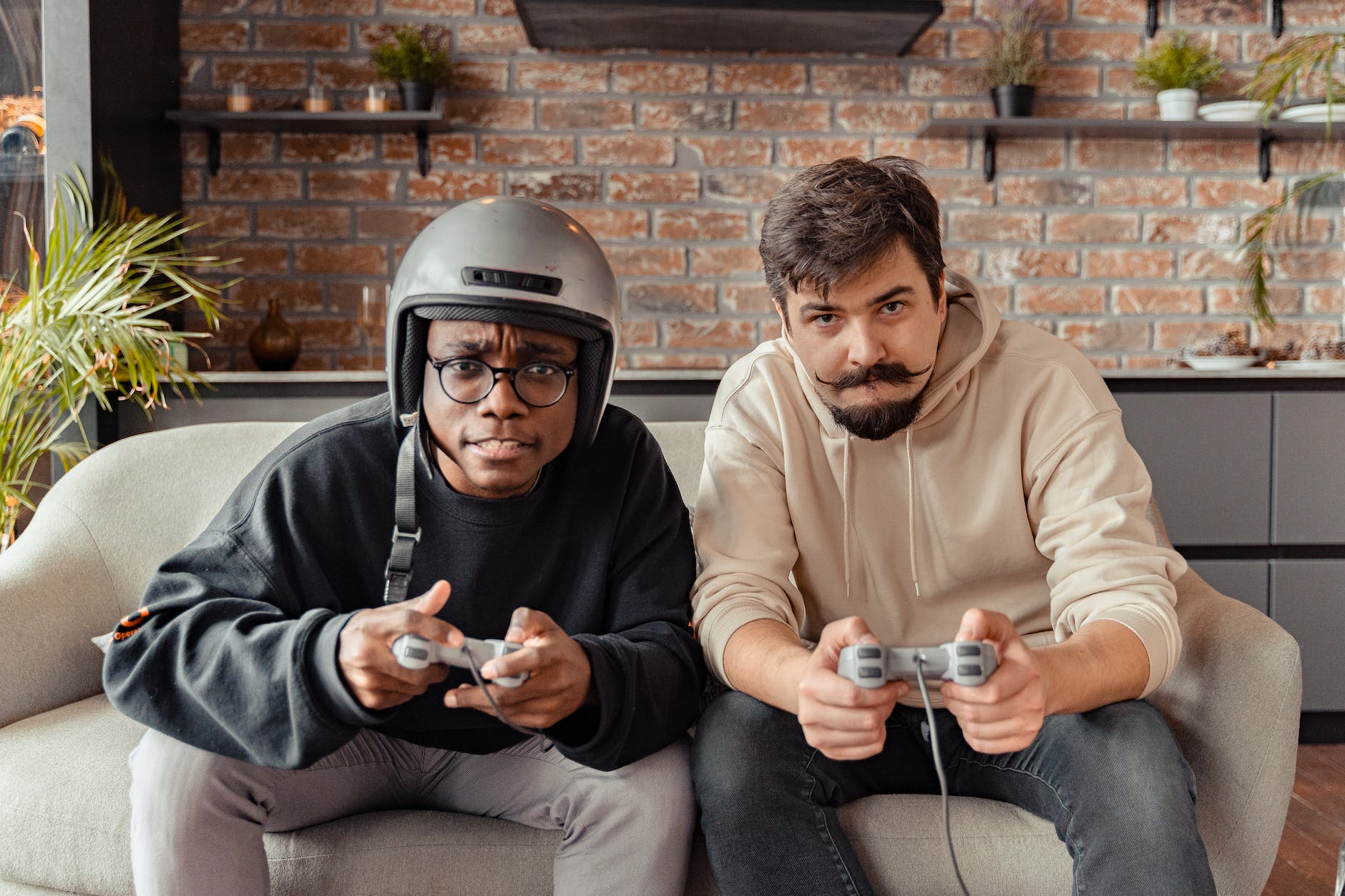
Gaming
Welcome gamers! We all know that feeling of pure excitement when we power up our gaming PCs and dive into a virtual world filled with epic battles, stunning visuals, and heart-pounding adventures. However, what happens when your trusty gaming companion starts to show signs of wear and tear? Don’t panic just yet – it might be time to consider some much-needed gaming PC repair. In this blog post, we will explore the four telltale signs that indicate your gaming PC is in need of some TLC.
Your computer is overheating
Your computer is overheating – a nightmare for any gamer in the midst of an intense gaming session. You know the feeling – your palms are sweaty, your heart rate quickens, but it’s not because of the game; it’s because your PC feels hotter than a scorching summer day.
But why does this happen? Well, when you’re pushing your gaming rig to its limits with high-end graphics and demanding gameplay, it generates a lot of heat. If that heat isn’t properly dissipated, it can lead to serious performance issues and even permanent damage to your hardware.
So how do you know if your PC is overheating? One telltale sign is if you start experiencing sudden shutdowns or random reboots during gameplay. This could be caused by thermal throttling – a safety mechanism that kicks in when temperatures reach dangerous levels.
Another indicator is if you notice loud fan noises or constant whirring coming from inside your case. This suggests that your cooling system is working overtime to keep temperatures down.
If you suspect overheating, don’t fret just yet! There are some steps you can take to address this issue without having to invest in a whole new system. Check that all fans are working correctly and aren’t obstructed by dust or debris. Cleaning out any buildup can greatly improve airflow and reduce heat accumulation.
Consider investing in additional cooling solutions such as aftermarket CPU coolers or extra case fans. These can help dissipate heat more effectively and maintain optimal temperature levels during those heated gaming sessions.
Your computer is freezing or crashing
Is your gaming PC constantly freezing or crashing? Especially when you’re playing intensely, it can be frustrating. But don’t worry, there are several signs that indicate it’s time to repair your computer.
If your computer freezes or crashes frequently, it could be a sign of software or hardware issues. Outdated drivers or incompatible programs can cause instability and lead to crashes. Additionally, overheating components such as the CPU or GPU can also result in freezing and crashing.
If you notice unusual error messages appearing on your screen during these freeze-ups or crashes, it’s definitely time for a repair. These error messages often indicate specific problems with certain components or software conflicts.
Pay attention to any strange noises coming from your PC. Unusual clicking sounds could suggest a failing hard drive, which could ultimately lead to system freezes and crashes.
Keep an eye on any sudden reboots without warning. If your computer is spontaneously restarting itself while gaming, it might be due to power supply issues or motherboard failures.
Your graphics are poor
In gaming, visuals play a crucial role. If you notice that your games are not looking as sharp or vibrant as they should be, it could be a sign that your graphics card is struggling.
One of the first things you can do is check the settings within your game. Make sure that all graphical options are set to their highest level and see if there is any improvement. If not, then it may be time to consider repairing or upgrading your graphics card.
Another potential cause of poor graphics could be outdated drivers. Graphics card manufacturers regularly release updates to optimize performance and fix bugs. By keeping your drivers up to date, you ensure that your games run smoothly and look their best.
It’s also worth checking if there are any issues with the connection between your monitor and computer. Loose cables or faulty ports can result in distorted images or reduced display quality.
Don’t let poor graphics ruin your gaming experience! Take action by troubleshooting potential issues with settings, drivers, connections, and hardware specifications before considering repair or upgrade options for optimal gameplay visual
Your computer is slow
Is your gaming PC feeling sluggish lately? Are you experiencing frustratingly slow load times and laggy gameplay? If so, it might be time to consider repairing your computer. A slow computer can seriously hinder your gaming experience, causing delays and frustration when you’re trying to immerse yourself in the virtual world.
Slow computers can be caused by several factors. One common culprit is a lack of available memory or RAM. When you’re running multiple applications or games at once, your computer may struggle to keep up, resulting in slower performance.
Another possible issue could be an outdated or fragmented hard drive. Over time, files on your hard drive can become disorganized and scattered, making it harder for your computer to access them quickly.
Additionally, if you haven’t updated your drivers recently, this could also impact the speed of your gaming PC. Drivers are essential software components that allow hardware devices to communicate with the operating system effectively. Outdated drivers may not be optimized for newer games or software updates, leading to decreased performance.
Updating drivers and installing any available software updates is crucial as well. Manufacturers often release driver updates specifically designed to improve compatibility with new games or address performance issues
How to prevent future issues
To ensure that your gaming PC runs smoothly and avoids any potential issues in the future, there are a few steps you can take. First and foremost, make sure to keep your computer clean. Overheating and reduced performance can be caused by dust buildup. Regularly dust off the fans, vents, and internal components of your PC.
Another important step is keeping your software up to date. Outdated drivers or operating systems can cause compatibility issues or security vulnerabilities. Regularly check for updates and install them as soon as possible.
Furthermore, it’s crucial to protect your gaming PC from malware by using reliable antivirus software. Malicious programs can not only slow down your computer but also compromise its security.
Additionally, consider investing in a good quality power supply unit (PSU) that provides stable power output. A faulty PSU can cause system instability or even damage components.
By following these preventive measures, you can prolong the lifespan of your gaming PC and minimize the need for repairs in the future. If you ever encounter issues with your gaming PC, you can rely on Geekscallout, a trusted provider of expert laptop and PC repairing services in London, to help you get back to gaming smoothl
Conclusion
It is important to pay attention to the signs that indicate your gaming PC may need repair. Overheating, freezing or crashing, poor graphics, and slow performance are all indications that something is not right with your system. By addressing these issues promptly, you can prevent further damage and ensure optimal gaming experiences.
If you notice any of the signs mentioned in this article occurring with your gaming PC, don’t hesitate to seek professional help from reputable PC repair specialists who specialize in gaming systems. They have the expertise needed to diagnose problems accurately and provide effective solutions tailored specifically for gamers.
So keep an eye out for those warning signs! With proper care and attention, you can ensure many hours of smooth gameplay on your beloved gaming rig.






